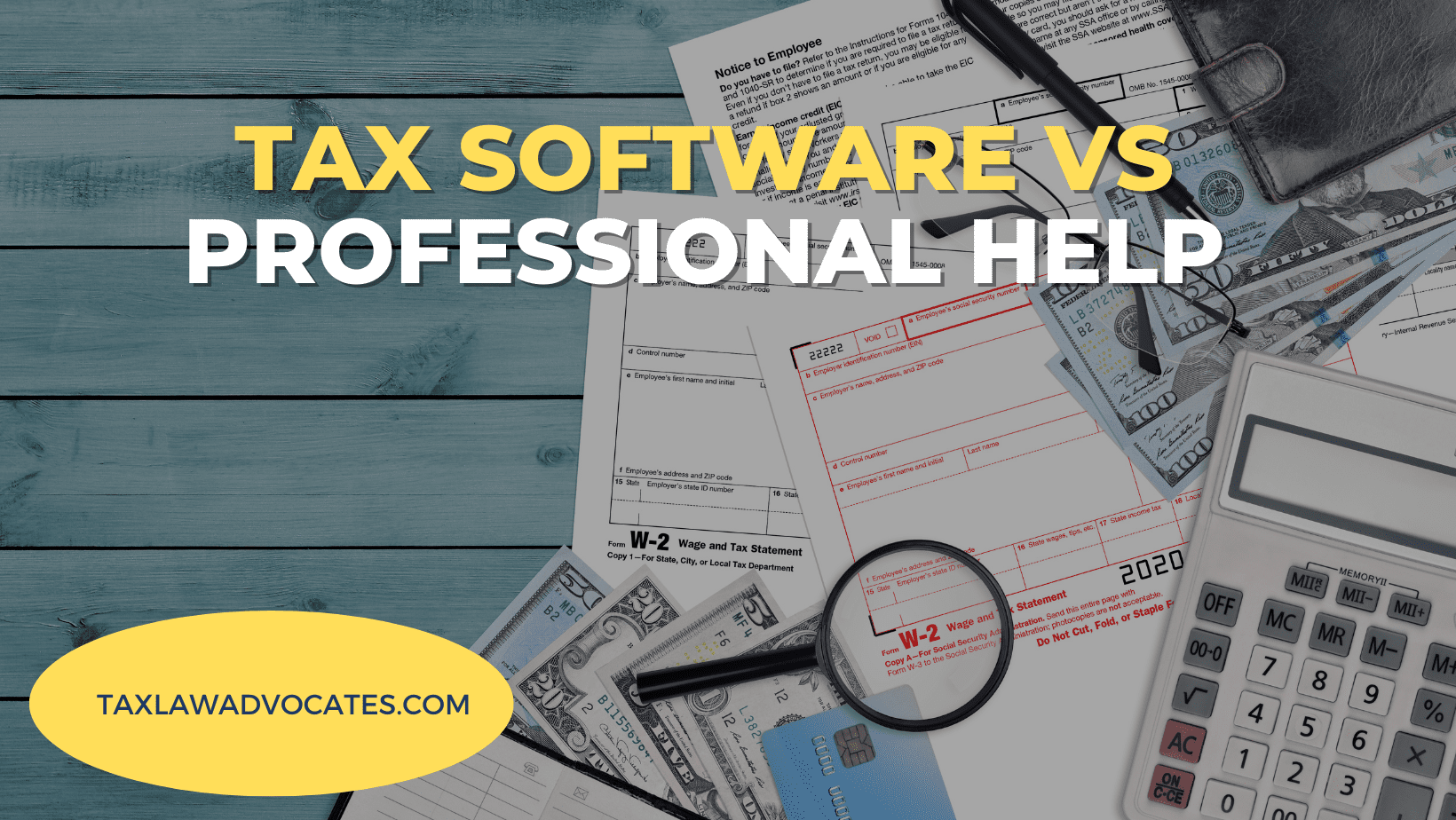As tax season approaches, taxpayers face the perennial question: should they file their taxes using DIY tax software or enlist the help of a professional tax preparer? Each method comes with its own set of advantages and disadvantages, and the best choice depends on your unique financial situation, tax complexity, and personal preferences. In this blog, we’ll explore the pros and cons of both options to help you make an informed decision. At Tax Law Advocates, we’re here to provide expert guidance and support for all your tax-related needs. For personalized assistance, contact us at 855-612-7777 or visit our website.
Tax Filing Basics
Before diving into the comparison, it’s important to understand some basics about tax filing. The deadline to file taxes is April 15 each year, but if this date falls on a weekend or holiday, the deadline shifts to the next business day. The IRS offers a six-month extension if you request it in writing using Form 4868: Application for Automatic Extension of Time To File U.S. Individual Income Tax Return.
The IRS recommends filing electronically and opting for direct deposit to expedite the process and minimize errors. Taxpayers can choose to file using tax software—some of which utilize artificial intelligence (AI)—or hire a professional preparer.
Using Tax Software
Many taxpayers opt for tax software due to its convenience and cost-effectiveness. Here are some key factors to consider:
Price
Tax software is generally less expensive than hiring a CPA or professional tax preparer. Prices vary depending on the software and the complexity of your tax situation. Companies like H&R Block and TurboTax offer packages ranging from $25 to $120. Simple returns may even qualify for free filing services.
Speed
Filing at home allows you to complete your taxes at your own pace. For uncomplicated returns, the process may take less than an hour. Once filed, your return is usually sent directly to the IRS and your state agency, and you receive a confirmation email. In contrast, professional preparers may take several days to weeks to process and file your return.
Simplicity
Good tax preparation software guides you through the process with user-friendly interfaces and step-by-step instructions. Online support is often available for additional assistance. This can be ideal for individuals with straightforward tax situations, such as single income sources and a few deductions.
DIY Software Eligibility
Certain taxpayers may qualify to file their federal tax returns using the IRS’s Direct File program. This is available in select states, including Arizona, California, Florida, Massachusetts, Nevada, New Hampshire, New York, South Dakota, Tennessee, Texas, Washington State, and Wyoming, and requires meeting specific eligibility criteria.
Hiring a Professional
For individuals with more complex tax situations, hiring a professional tax preparer can be beneficial. Here are some of the advantages:
Expertise
Professional tax preparers, including CPAs and enrolled agents, possess extensive knowledge of tax laws and regulations. They can provide valuable advice on tax planning and strategies to minimize your tax liability. This expertise is particularly beneficial for those with multiple income streams, business income, or complex deductions.
Better Software
Professionals use sophisticated accounting software that can handle more complex tax scenarios. These programs can quickly scan and organize information, reducing the likelihood of errors.
Time Savings
Tax professionals can save you significant time, especially if your tax situation is complicated. They are familiar with the system and can efficiently handle tasks that might take you hours of research.
Relationship Building
Developing a relationship with a tax professional can provide long-term benefits. They will understand your financial situation and can offer tailored advice to help you achieve your financial goals.
Cost
The cost of hiring a professional can vary. On average, a federal tax return with a Schedule A and a state income tax return costs about $323. While this is more expensive than most tax software, the potential tax savings and peace of mind may justify the expense.
What Is the Difference Between a CPA and a Tax Professional or Preparer?
A certified public accountant (CPA) is a certified tax professional who may work in various fields, including private accounting or auditing. Tax professionals or preparers are not CPAs and do not hold certifications but may be employed by tax preparation companies or the IRS.
Is It Worth It to Pay for a Tax Professional?
The decision to hire a tax professional depends on the complexity of your tax situation. If you have simple taxes, such as a single income source and few deductions, filing yourself using tax software might be the most cost-effective option. However, if you have complex taxes that require special forms and calculations, hiring a professional can ensure accuracy and potentially save you money in the long run.
Where Can Taxpayers Find Important Tax Filing Information?
The IRS provides educational information, helpful tips, and online access to individual accounts through their website. Additional resources include Investopedia’s tax page, which offers extensive information about tax filing.
The Bottom Line
Choosing between tax software and professional help depends on your unique circumstances. Individuals with straightforward tax situations may save money by using tax software, while those with complex financial scenarios will benefit from the expertise and personalized advice of a professional.
At Tax Law Advocates, we understand the nuances of tax preparation and are here to help you make the best choice for your needs. Whether you decide to go the DIY route or seek professional assistance, we are available to provide support and guidance. For expert tax help, contact us at 855-612-7777 or visit our website. Let us help you navigate the complexities of the tax system and maximize your return.






